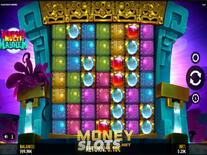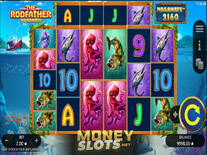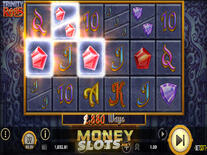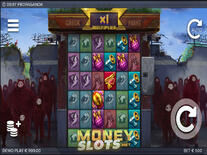

Fair And Unfair Online Casinos
The issue of honesty towards players at an online casino is a key question in Internet gambling. We need to say first that there are literally no honest casinos in the proper sense of the word. And dishonesty doesn’t lie in attempts to throw the dice away from your bet, hide an ace in a dealer’s sleeve or do any similar silly trick. Such gimmicks are expensive, complex and utterly unfavourable. The point is that the casinos enjoy the most powerful of allies, i.e. mathematics. What they make use of is not simply maths, but the most practical of its applications, namely, the theory of chances. In any casino’s rules the mathematical odds will be a little shifted to its side. It is this advantage that keeps casinos on the go. However, this does not at all mean it is impossible to win against a casino. Many players manage to hit jackpots or stay in the black for a long time, but, due to the large numbers of players willing to try their luck and the advantage casinos enjoy, the latter keep the pot boiling. With casinos, the theory of chances is their magic wand.
Why casinos win over players more often than not?
The fuller a casino sticks to its rules and the more honest it is with the players – the bigger its profits are. Yes, it may seem nonsensical, but it is indeed so. Cheaters don’t last long in the business – they soon see the backs of their clients. On average, casinos have an advantage of 1% to 10% in any game, so if they bend the rules, the advantage becomes even more substantial. In this case, the end is nigh – the players will smell the rat and vote with their feet. It would be apt to compare this to a groceries store. If its manager orders cashiers to cheat customers by artificially increasing the sums they have to pay, the profits of the store will rise at first, but than the owner will suffer great losses, for people will simply stop shopping there, unless the store is the only one in the neighbourhood. The same applies to online casinos. Apart from that, there is another peculiar detail. Many players believe that the advantage per cent of the casino is directly proportional to its gains. Therefore, many unlucky players accuse casinos of lowering the percentage (which is also known as the ‘payout’). In fact, they are wrong. A casino enjoys higher revenues with a lower payout, it is true – but for a limited time span. The competition among casinos is intense, especially in the cyberspace, where their rivals are just a click away. The outflow of players brings damaging adverse publicity. It is for this reason that the payout in most casinos is moderately low – to allow some players to win and thus do advertising to the casino. This is a common view among dilettantes that the casino first gives and then takes. This is not completely true, but only partially. The small advantage is almost invisible to players, so it sometimes occurs that some of them are in the black, and the casinos in the red. Incompetent players call it a streak of luck. Mathematics, though, refers to it as the dispersion – the deviation from the normal state of things at a casino. And this ‘normal’ state means that the player should invariably lose. In sum, when you think that you are going through a run of luck, maths corrects you and says that you are in a state of dispersion, which is only temporary. It is in this connection that experienced players leave on the peak of their luck and don’t wait for it to turn away. Mathematicians would put it this way: as the dispersion is a temporary phenomenon, the situation will in time restore to the norm, and the player will eventually lose all his bank.
Types of players that have a thing about casinos’ dishonesty.
It lies deep in the psychology of any human being: we attribute successes to ourselves, but explain our failures with anything but our own silliness. Whenever you set to play against a casino, remember: the luck is a bit shifted from your side, however honest your casino might be. Although many understand that, they still hope that the universal laws of mathematics will come by. To see this, visit any gaming forum and read the posts of those who believe casinos to be nothing but charities that have to give away money at their first demand. The casino never plays on a par with you. It so happens that the roulette often becomes the victim of the accusers. This probably is explained by the seeming ease of playing it. What on earth could be easier than guessing at one of the two colours (while utterly forgetting about zero)? If you asked these roulette fanatics to bet on one of the two football teams of equal strength, one with 11 players, the other with 10, they would invariable bet on the one with 11 team members. While at a casino, however, they always do the reverse thing, betting on 10 players (just as the rules suggest) and never on 11 (the casino). No wonder they more often lose than win. Using the laws of mathematics in the first example with the teams, they flatly forget about them while gambling.
Why players more often lose at online casinos than at real ones?
This is just because it is easier to win at an online casino, where the game is 5-6 faster than at its real-life prototype. No time is spent on counting the wins, players’ contemplations, dealer’s slowness, etc.
The most usual accusations from casino losers.
These most often revolve around the assumed strangeness of getting numbers, as when the same number occurs three times in a row. Mathematics explains, though, that the chances of getting 28, 28, and 28 are the same as getting 17, 30, and 14. Besides, keep in mind that the gaming process is much faster in cyberspace. The probability of three numbers in succession is 137^2= 11369. If the average speed of the roulette is 120 spins per hour, you can see this rare sequence about twice per day. No wonder that doublets occur even more often: 19 and 19, for instance, can be spotted every 40 minutes. The player’s magic formulaEven if you play at a perfectly honest casino, don’t think that it has no advantage over you. Before embarking on a game, read the following formula and, if possible, learn it by heart: you can win at a casino, you can win a lot at a casino, you can win a fortune at a casino, but you cannot ever earn at a casino.
You might be also be interested in these articles
-
News
- Betsoft Gaming Invites Players to Hit the Halloween Jackpot in a Rags to Witches Adventure
- Yggdrasil and Bang Bang Games Are Ready for Halloween with Jekyllz Wild Ultranudge
- Play’n GO Slays with Latest IP Title, Dio – Killing the Dragon
- Pragmatic Play Revolutionises a Popular Title in John Hunter and the Book of Tut Respin™
- Betsoft Gaming Releases Captain’s Quest Treasure Island
-
Articles
-
Latest Slots Reviews














































